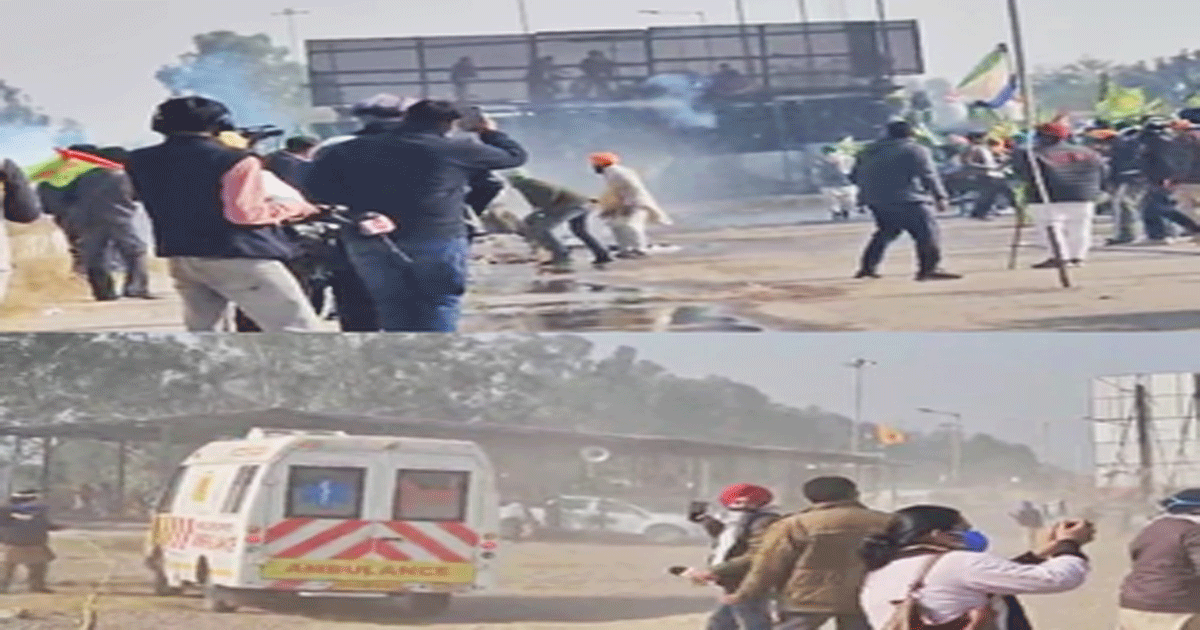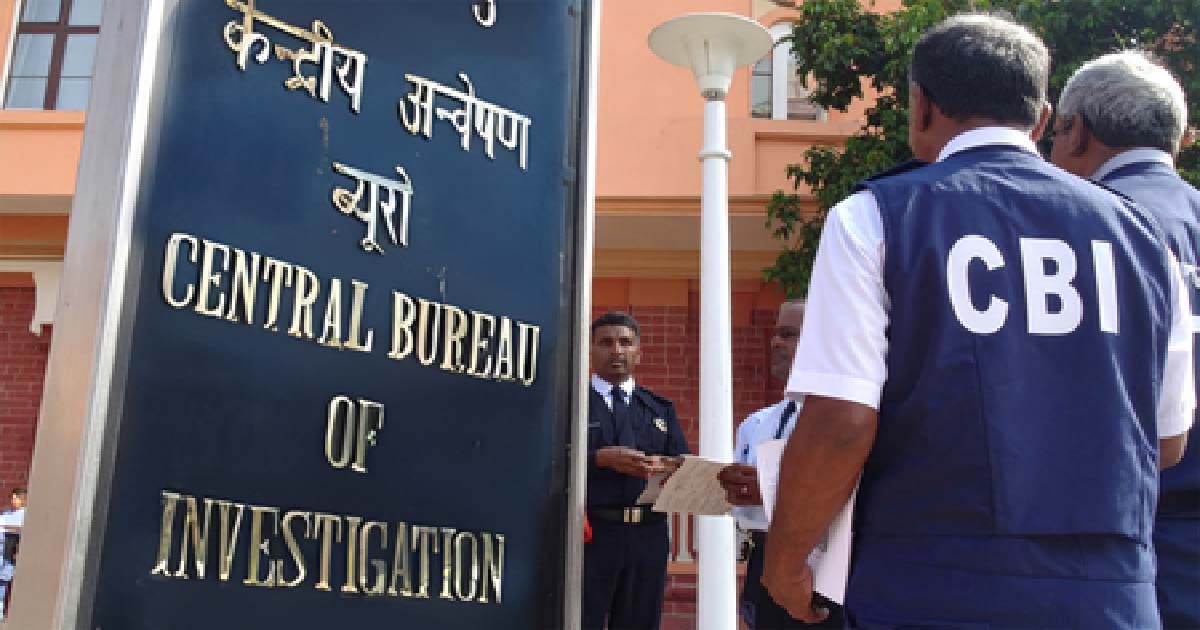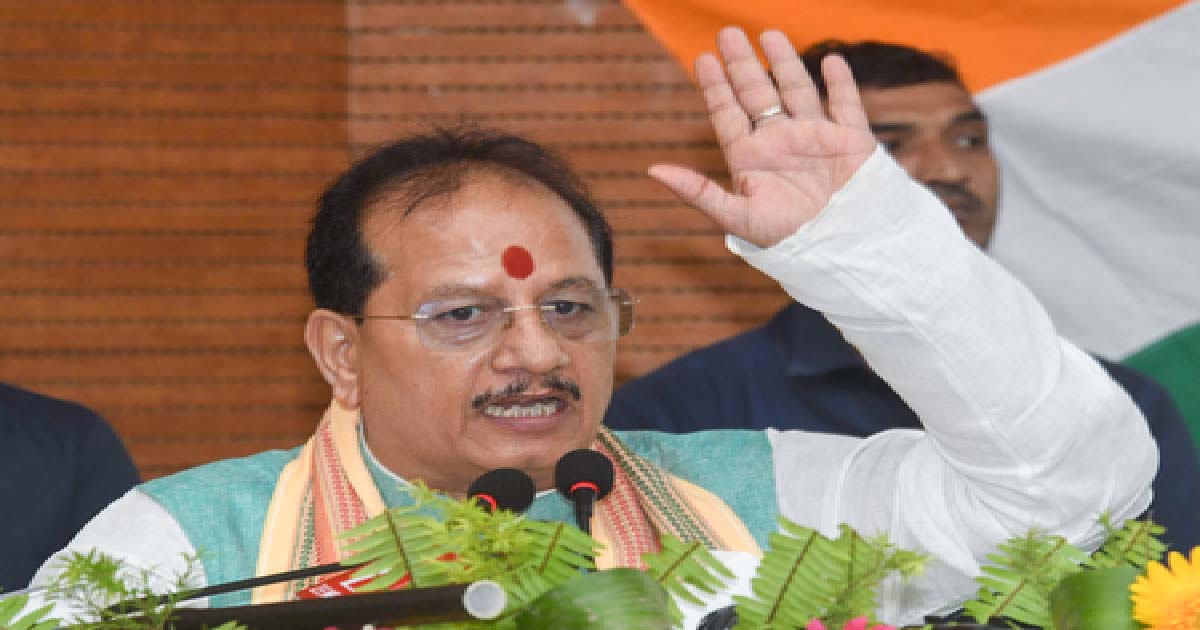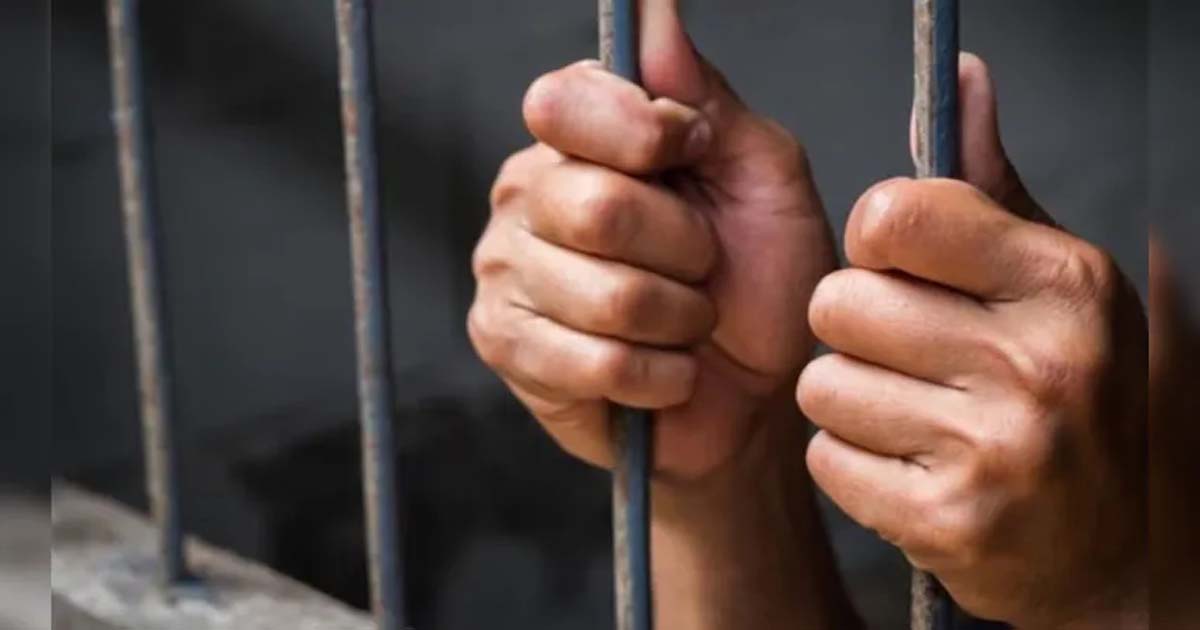National News
Police use teargas, water cannon to disperse protesting farmers at Shambhu border

Chandigarh, Dec 14: Haryana security personnel on Saturday lobbed teargas shells to disperse protesting farmers who were attempting to cross multi-layered barricades erected as a preventive step at Shambhu border point between Punjab and Haryana.
The farmers were demanding to go to the national capital in support of their long-pending demands, including a legal guarantee for minimum support price (MSP) for crops, loan waiver and reforms to improve conditions in the agricultural sector.
The police, who were trying to convince a batch of 101 farmers that they should not enter Haryana as they didn’t have permission to go to the national capital, and should go back, also used water cannons to disperse them.
This was the third attempt by the 101 farmers to march towards the national capital as part of the ongoing protest that has now completed 10 months. Earlier, they attempted to march towards Delhi on December 6 and 8.
The protesting farmers have been camping at the Shambhu and Khanauri borders, both in Punjab, since February 13, after security forces stopped their attempts to proceed to Delhi.
Protest leader Sarwan Singh Pandher slammed the Central government’s silence over farmers’ demands. He called on the government to engage in dialogue with the protesters, warning that the movement could intensify.
He criticised the authorities for repeatedly stopping their march and asking them to seek permission from the Delhi administration. He questioned how a group of 101 farmers marching on foot could pose any threat, emphasising their peaceful approach.
Mobile internet and SMS services were suspended in several parts of Ambala district till December 17 a precautionary step amid farmers’ protest.
Another farmer leader Jagjit Dallewall has been observing fast for the past 19 days to mark his peaceful protest at the Khanauri border.
As per reports, his health is deteriorating day by day and he has reportedly lost over 12 kg weight so far.
Crime
CBI court sentences former oriental insurance manager to 3-year jail in bribery case

New Delhi, Nov 29: A special CBI court in Ahmedabad on Saturday sentenced former Senior Divisional Manager of Oriental Insurance Company Limited, Rajkot, Mahendra A. Loonker, to three years of rigorous imprisonment in a 13-year-old bribery case.
The court also imposed a fine of Rs 1 lakh on the former official.
According to the CBI press note, the case was registered on July 11, 2012, following a complaint by a partner of a private firm.
Loonker, then serving as Senior Divisional Manager at the insurance company’s Rajkot office, had allegedly demanded a bribe of Rs 15,000 to clear an accident insurance claim submitted by the complainant for an injured employee.
“CBI registered the instant case on July 11, 2012 against the accused person on allegations that accused Mahendra A Loonker, the then Sr. DM, Oriental Insurance Co. Ltd., Rajkot had demanded and accepted an illegal gratification of Rs 15,000 from the complainant, Partner of a private company in order to pass the Accident Insurance Claim filed by him regarding the accident and injury of his employee,” the CBI said.
CBI officials arrested Loonker the same day the FIR was filed, after he was found to have accepted the bribe.
Subsequent searches were carried out at his residence and office premises in Rajkot. Investigators later filed a chargesheet on December 3, 2012, against the accused for demanding and accepting illegal gratification and criminal misconduct committed by the accused public servant.
After examining the evidence and hearing arguments from both sides, the court held Loonker guilty and convicted him accordingly.
Meanwhile, the CBI Court in Vijayawada on Friday sentenced a former Railway official to one year of imprisonment in a nearly two-decade-old bribery case.
The court convicted Matta Dharma Rao, who was serving as Assistant Divisional Engineer with South Central Railway in Bhimavaram, West Godavari district, for demanding and accepting illegal gratification from a contractor.
Crime
No firearms used in Bihar Deputy CM Sinha’s victory procession, clarify police

Patna, Nov 29: A day after a purported video showed supporters using guns to fire in the air during the victory march of Bihar Deputy Chief Minister Vijay Kumar Sinha in Lakhisarai, Superintendent of Police Ajay Kumar on Saturday clarified that “firecracker guns, not firearms” were used in the celebratory firing.
Vijay Kumar Sinha, who has been elected from Lakhisarai for the fifth time, was welcomed by supporters in a grand procession.
The video circulating on social media alleged that supporters used firearms, triggering sharp criticism. However, the police investigation found the claims to be misleading.
According to SP Ajay Kumar, the device seen in the video was seized and examined by an armourer.
The probe confirmed that it was not a real rifle but a firecracker gun, a device commonly used for fireworks, bird-scaring, and to chase away nilgai and boars that damage crops in the region.
“It poses no threat to life or property,” the SP said.
Locals said that such devices are traditionally used in weddings, festivals, and celebrations involving the fulfilment of vows. After verifying their statements, police released the two youths seen handling the device in the video.
The Superintendent of Police urged the public to verify the authenticity of any video or claim before sharing it online, cautioning against the spread of misinformation.
He reiterated that the firing involved only a firecracker containing gunpowder, not a live bullet.
Following the viral video, RJD leaders were quick to target the Deputy Chief Minister.
From the party’s official X handle, RJD posted, “Fire the bullet, show the double-barrelled gun, intimidate the public – the government of loud speeches has arrived. Now for five years, keep listening to sermons based on stories from 25–30 years ago, because this government is capable of nothing more than this.”
RJD spokesperson Ejaz Ahmed also criticised the administration, saying, “The gunfire that greeted Deputy Chief Minister Vijay Sinha shows the true state of affairs in Bihar. While the Home Minister talks about expelling crime and criminals, the government must clarify what action will be taken against those who created fear among the public with such firing.”
Mumbai Press Exclusive News
Jogeshwari POCSO case: Accused out on bail arrested again

Mumbai: A fugitive accused involved in the Mumbai Pisco case has been arrested again by the Jogeshwari police after 6 years. In Jogeshwari, Mumbai, accused Pankaj Panchal, 27, was arrested in 2019 in the Pisco child abuse and exploitation case and was on bail but was absent from court proceedings and had been hiding his identity for the last 6 years. The police received information that the accused had come near the SRA building, on which the police laid a trap and succeeded in arresting the accused from Jogeshwari. The court had also issued a non-bailable warrant against him, after which the police complied with it and arrested him and presented him in the court and the court has sent him on remand. The police are investigating further. This information has been given by DCP Datta Nalawade of Mumbai Police Zone 10.
-

 Crime3 years ago
Crime3 years agoClass 10 student jumps to death in Jaipur
-

 Maharashtra1 year ago
Maharashtra1 year agoMumbai Local Train Update: Central Railway’s New Timetable Comes Into Effect; Check Full List Of Revised Timings & Stations
-

 Maharashtra1 year ago
Maharashtra1 year agoMumbai To Go Toll-Free Tonight! Maharashtra Govt Announces Complete Toll Waiver For Light Motor Vehicles At All 5 Entry Points Of City
-

 Maharashtra1 year ago
Maharashtra1 year agoFalse photo of Imtiaz Jaleel’s rally, exposing the fooling conspiracy
-

 National News1 year ago
National News1 year agoMinistry of Railways rolls out Special Drive 4.0 with focus on digitisation, cleanliness, inclusiveness and grievance redressal
-

 Maharashtra1 year ago
Maharashtra1 year agoMaharashtra Elections 2024: Mumbai Metro & BEST Services Extended Till Midnight On Voting Day
-

 National News1 year ago
National News1 year agoJ&K: 4 Jawans Killed, 28 Injured After Bus Carrying BSF Personnel For Poll Duty Falls Into Gorge In Budgam; Terrifying Visuals Surface
-

 Crime1 year ago
Crime1 year agoBaba Siddique Murder: Mumbai Police Unable To Get Lawrence Bishnoi Custody Due To Home Ministry Order, Says Report












